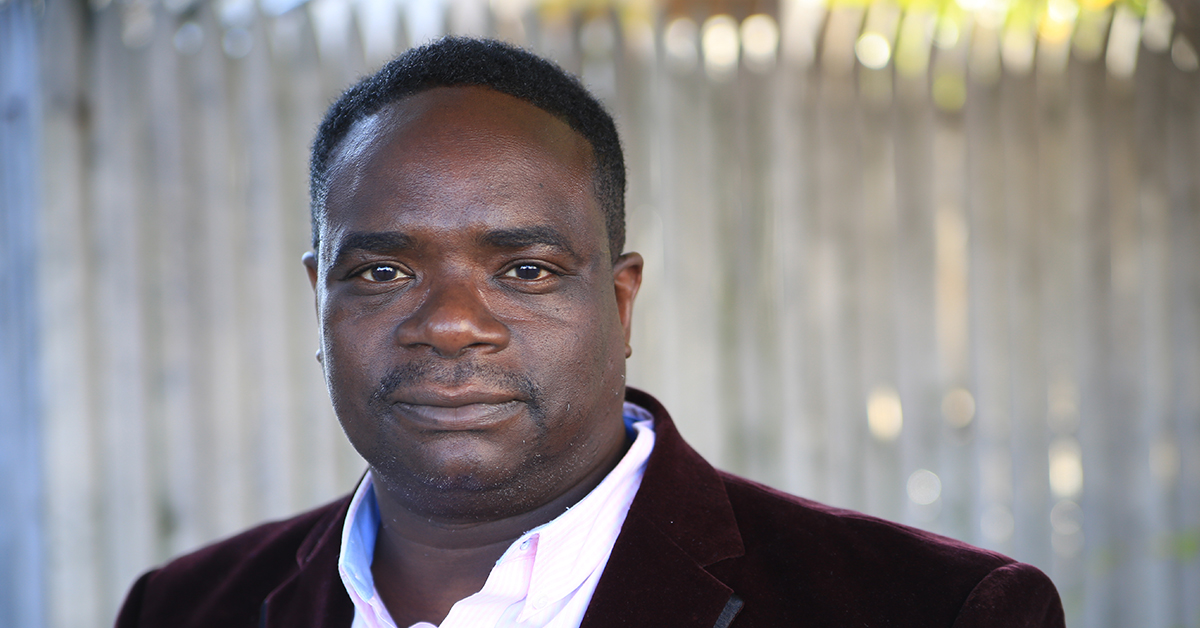Rodney Roberts Talks About Pleading Guilty Out of Fear, Not Guilt: ‘My Life Was on the Line’
02.03.17 By Carlita Salazar
On Thursday, New Jersey-based exoneree Rodney Roberts came to the Innocence Project office in Manhattan to participate in a Facebook Live chat. Roberts, who is featured in the Innocence Project’s recently launched education campaign guiltypleaproblem.org, spoke about the difficult circumstances that pressured him into pleading guilty to a kidnapping and sexual assault that he did not commit.
If you missed the live chat, you can watch the video at the end of this post. You can also read some of the highlights:
Roberts emphasized that the guilty plea phenomena, as well as wrongful convictions, are not isolated to people of color: “To my surprise and statistically, as well, [pleading guilty when innocent] is not just a minority problem or a black problem. It can happen to anyone—black, white, Latino, Asian. Everyone is susceptible to being wrongly arrested and misidentified or [put] into a set of circumstances to put them in prison. . . I don’t want to limit it to a minority problem when it’s much broader than that and much more systemic than that.”
He gave advice and encouragement to others who are innocent and incarcerated: “Keep fighting. If you currently find yourself in prison and for whatever reason you are innocent . . . but people don’t believe you . . . [it’s] going to be overwhelming to you. You’re trying to be sincere at heart and you’re trying to explain that you didn’t do it, but the majority are looking at you like, ‘Everyone incarcerated says that they’re innocent.’”
Robert said that wrongfully convicted people need to be active to prove their innocence:. “It doesn’t come from your words. It comes from the actions that you take, the energy you put in—day-in, day-out—learning the law, going to the law library to educate yourself, taking additional courses that will allow you to be more educated and more fluent in communicating. . . . It’s what you do and who you write and who you contact. And the Innocence Project is a leading organization that will help you get a jump start on that quest to prove your innocence.”
He addressed those who claim that they would never plead guilty to crimes they didn’t commit: “I had that same mindset until I was put in the situation where I was forced [to face] spending the rest of my life incarcerated or just minimal time.
Even though I didn’t [commit the crime] it was like I had to choose between Lucifer and Satan; which was the lesser of two evils? Was I going to stand firm and say no [to taking a plea deal] and then spend 30 years [in prison]? Or the minimum sentence of seven years that they gave me and I’d be home in two years? The circumstances were that overwhelming for me.
I was already in custody so they proved that they could hold me. . . . So I believed them when they said that they had the power to hold me for the rest of my life as well.”
Roberts explained how the system’s dysfunction and reliance on plea deals prevented him from receiving fair representation and pressured him into pleading guilty: “One of the biggest problems was that my attorney—my public defender—who at the time, had maybe 70 or 80 cases. And like 25 or 30 of those clients were in the bullpen—the holding area before you go to court—with me. He was seeing everyone of us like an assembly line process. . . . All he was just trying to do was reduce his case load.
It wasn’t the prosecutor who I [spoke to about the deal]. It was my attorney who brought information from the prosecutor who helped him to coerce and create this fabricated story. I felt [at the time] that the lawyer was the one person there to help me—he was my lawyer—and that everyone else was against me, not realizing how much the lawyer played a part in the whole coercion.”
Go to guiltypleaproblem.org to learn more about why innocent people plead guilty to crimes they didn’t commit. And stay tuned for a new video featuring California Innocence Project client Brian Banks, which will be released on Sunday.
Leave a Reply
Thank you for visiting us. You can learn more about how we consider cases here. Please avoid sharing any personal information in the comments below and join us in making this a hate-speech free and safe space for everyone.
February 8, 2017 at 1:43 am

Dear Carlita-
As much as I was excited to become a public defender lawyer 27 years ago, I was not excited to know about the innocent people who plead guilty to avoid the risks of a much worse outcome from pleading innocent. Nor was I excited about how much judges and prosecutors rely on guilty pleas to the point that guilty pleas are rewarded for “accepting responsibility” and convicted people who exercised their Constitutional right to a trial are slammed with a harsher sentence than if they had entered a guilty plea.
In any event, a criminal defendant must never find himself or herself pleading guilty out of fear that his or her lawyer simply is not sufficiently prepared enough nor capable enought to do a good job at trial.
Be well.
Jon Katz